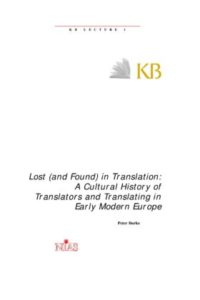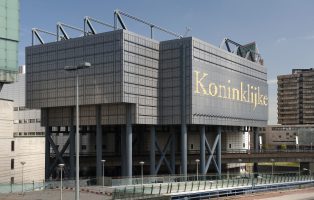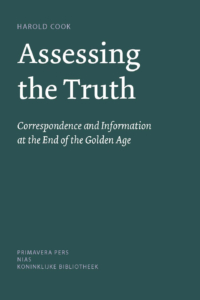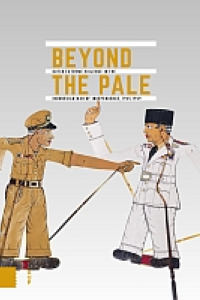About the Book
“The past is a foreign country, they do things differently there” is an often quoted sentiment for historians. We don’t understand the past, it functions on different rules and parameters than the world that has shaped our lives. Peter Burke, prominent cultural historian, and NIAS alumnus, calls the historian the translator of this foreign country. And while, perhaps, we can never truly know the past in its true and untouched state, the glimpses that history’s translation gives us into its complexities can explain the world we live in today. In the same way, the translators throughout history laboured to proliferate the knowledge of man, not just from man to man, but from culture to culture. It is this topic that Peter Burke elaborates on in his KB Lecture at the Dutch National Library in 2005, held as part of the NIAS-KB Fellowship.
With the increasing literacy of the early modern period, and the declining popularity of Latin as the de facto literary language, translation started to gain importance around the sixteenth century. The problem of translation is that not every word, concept, or thought can exist in languages other than the original. Think of ‘gezellig’ in dutch, ‘saudade’ in Portuguese, ‘poshlost’ in Russian, or the Italian ‘sprezzatura’. Understanding is a form of translating in itself, as in order to fully comprehend a concept it needs to fit within the individuals unique cognitive template.
Therefore, in order to translate knowledge the translator is forced to take some level of artistic license. Reworking, adding, changing, and ‘improving’ early modern works seems to typify this period’s translation tradition. The translators of these works can essentially be seen as co-authors of the knowledge that their subjects propagated. And while it is true that some of these translators have seen their names dedicated to the history pages, many still remain unnamed.
This lecture acts not just as a discussion of the patterns and history of translation, but also as a tribute to those whose humble labour came without due credit.
About the Author
Peter Burke, KB Fellow 2005, is Professor Emeritus of Cultural History at the University of Cambridge and Fellow of Emmanuel College, University of Cambridge. He is an eminent and internationally renowned scholar who is best known for his pioneering research on folk culture. Peter Burke is the author of many books amongst which Venice and Amsterdam: a Study of Seventeenth- Century Elites (London,1974), History and Social Theory (New York, 1992) and The European Renaissance: Centres and Peripheries (Oxford,1998). Peter Burke will give a lecture on the 14th of June at the NIAS during the NIAS Fellows Association Alumni Day.




